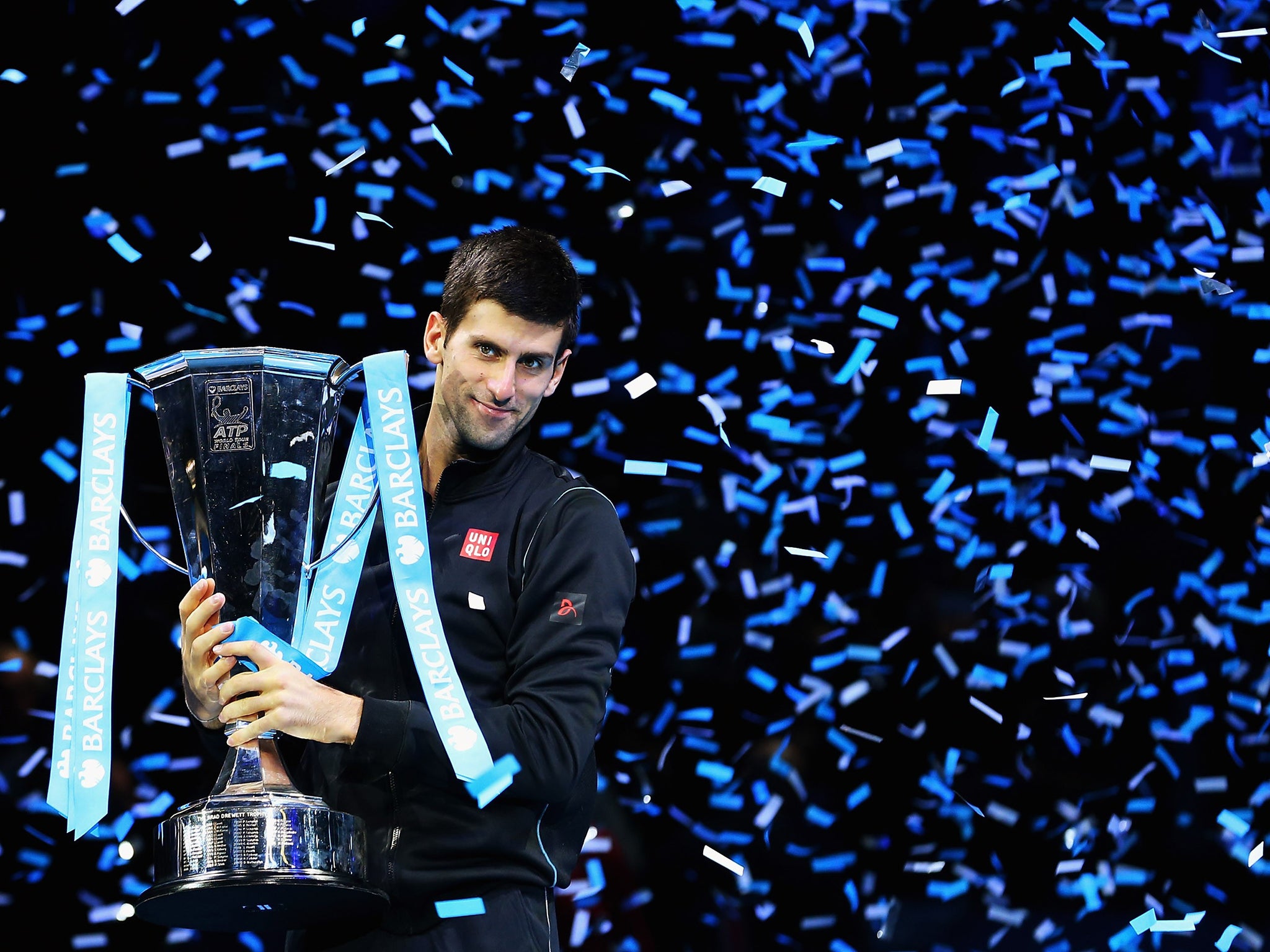ATP World Tour Finals: Old order in men's game showing no signs of collapse yet
Despite Nishikori, Raonic and Cilic appearing at O2, Big Four still rule

It has been a year dominated by talk of a new order in the men’s game, but as the season reaches a climax in London with next week’s Barclays ATP World Tour Finals the world rankings have a familiar look about them.
Novak Djokovic, Roger Federer and Rafael Nadal, the only three men to have led the rankings in the last 10 and a half years, occupy the top three places, while Andy Murray can reclaim the No 4 position over the next week.
Given the achievements of the top three in particular, Murray believes it is no surprise that the overthrowing of the ancien régime is not happening overnight. “Regardless of how much the younger guys improve, you’re talking about some of the best players who have ever played the game,” the Scot said at the O2 Arena yesterday. “And even if the younger guys improve, it’s not that easy just to knock them off the top.”
Stan Wawrinka, who kick-started the discussions about a changing of the guard by winning the Australian Open in January, agreed. “If you look at Roger, Novak and Rafa – provided he’s not injured – they’re still up there and stronger than everyone else,” the Swiss No 2 said ahead of his second appearance at the year-ending event.
“They have been the best players for so many years. I’m 29 and I’ve just won my first Grand Slam title this year. Roger won his first Grand Slam many years ago. He had time to deal with that and to win many more after that. He’s the best player ever. At every tournament he plays he wins matches, plays in the final, wins the title.”
The statistics tell their own story about the domination of the “Big Four”. Wawrinka and Marin Cilic, who won the US Open, might have made their breakthrough this year, but Federer, Nadal, Djokovic and Murray have still won 36 of the last 39 Grand Slam tournaments and 39 of the last 43 Masters Series events.
The presence, nevertheless, of three debutants at the O2 Arena next week – Kei Nishikori, Milos Raonic and Cilic – is evidence that a new wave of younger players have been making their mark.
Nishikori reached his first Grand Slam final at the US Open and Raonic made his first semi-final at Wimbledon. Grigor Dimitrov and Ernests Gulbis, who both came close to qualifying for London, also played in their first Grand Slam semi-finals this year.
“There definitely has been a change, but it’s not been as drastic as people were maybe making out at certain periods of the year,” Murray said. “There have been a lot of firsts for the younger guys. They’ve improved, become more consistent and are moving towards their peaks.”
Even those players who have made the ultimate breakthrough this year by winning Grand Slam titles have had their subsequent struggles. With the exception of Wawrinka’s two big victories – he went on to win the Monte Carlo Masters – he has had a moderate year. Cilic, too, has quickly discovered how hard it will be to recreate his heroics at Flushing Meadows.
“I played some matches after the US Open where I got into the match and my opponents were swinging more, playing a much more risky game,” the Croat said. “I think players will play all-or-nothing in the matches. That’s positive for me because it shows that these guys have to play at their top level to beat me, but it’s not always easy to confront that match after match.
“The top guys deal with those situations really well. From the outside it might look as though nothing different is happening, but it is. It’s a different feeling. It’s not easy going into matches against big guys who can make you hurry.”
Djokovic knows how hard it can be to build on an initial breakthrough. After the Serb won his first Grand Slam title at the 2008 Australian Open he took three years to win a second one.
“I think the biggest adjustment is mental,” the world No 1 said. “I think that’s the challenge these guys are facing right now and will face in the months and years to come if they are want to win another Grand Slam.
“In my case I had a lot of doubts in those years after I won my first Grand Slam, mostly because I lost the majority of the big matches at the majors against my two biggest rivals, Nadal and Federer. I hit the bottom around 2010, but with the help of my team and all the people around me I managed to gather all the necessary mental strength and find the motivation to work even harder, to be patient. The process is long and it takes a lot of mental effort.”
Federer was asked whether the current world order indicated that there was still a substantial gap between the old guard and the rest. “The rankings at the moment show that might be the case, but then again I think the margins are so small that we are always having to prove ourselves, time and time again,” he said.
“Things can change very quickly in tennis, which is why I’m always very careful with predictions. It’s nice to see different faces at the World Tour Finals this year with Raonic, Cilic and Nishikori. It’s interesting now to see how it will all play out. Time will tell.”
Subscribe to Independent Premium to bookmark this article
Want to bookmark your favourite articles and stories to read or reference later? Start your Independent Premium subscription today.

Join our commenting forum
Join thought-provoking conversations, follow other Independent readers and see their replies